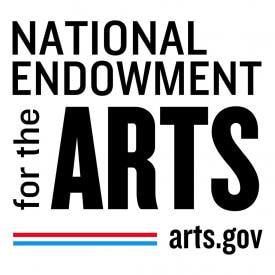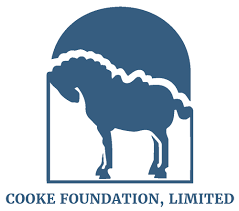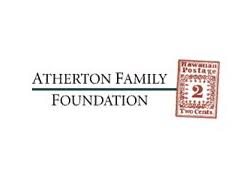The PlayBuilders of Hawai'i
Playbuilders of Hawai‘i Theater Company is a roving, multi-ethnic ensemble of experienced theatre makers who wish, through theatre, to create opportunities for effective communication and cultural exchange between the many diverse peoples of Hawai‘i.
We are what is known as a community-based, applied, or community-specific theatre. We travel to Hawai‘i’s geographic neighborhoods or other small communities to produce plays based on knowledge shared by community members. Although there are many companies of this type in the United States and other parts of the world, as far as we know, Playbuilders is Hawai‘i’s first and only.
2022 marks our 11th birthday! Itʻs wonderful to look back and see our progress. We have developed a strong, supportive board of directors and have successfully completed 14 community-collaborative projects for the geographic communities like Chinatown, Wahiawa, and Waipahu, as well as for the demographic communities of Oahu's LGBT and Homeless communities. We are also now award winning, having been acknowledged with multiple Po'okela Awards in 2014, and 2017 by the Hawaii State Theatre Council for "Houseless in Paradise" (Over All Play and Director of a Play) by Mark Tjarks and Directed by Terri Madden, and "Dragonfly, The Story of a Young Local Girlʻs Journey Through Foster Care" (Resident Playwright, Over All Play, and Ensemble) by Terri Madden with songs by Lala Kilolu, Apuauro Turano, and Ruth Shiroma Foster and Directed by William Haʻo.
We have collaborated with several schools and dozens of non-profits over the years, obtaining grants from the Mayors Office on Culture and the Arts, the Hawaii Peoples Fund, the Atherton, Cooke, and Geist Foundations through the Hawaii Community Foundation, and the National Endowment for the Arts. For the past couple of years we have received in-kind support from Hawaii Life Real Estate Company who allows us to rehearse and hold story circles in their offices all over the state.
While we are very proud of the overall progress we are making as a young company, we have very ambitious plans for the future. We have seen first hand that though our efforts and the magic of theatre; friendships are being made, communities are growing stronger with each story shared, and bridges of communication are continuing to be built.
We are what is known as a community-based, applied, or community-specific theatre. We travel to Hawai‘i’s geographic neighborhoods or other small communities to produce plays based on knowledge shared by community members. Although there are many companies of this type in the United States and other parts of the world, as far as we know, Playbuilders is Hawai‘i’s first and only.
2022 marks our 11th birthday! Itʻs wonderful to look back and see our progress. We have developed a strong, supportive board of directors and have successfully completed 14 community-collaborative projects for the geographic communities like Chinatown, Wahiawa, and Waipahu, as well as for the demographic communities of Oahu's LGBT and Homeless communities. We are also now award winning, having been acknowledged with multiple Po'okela Awards in 2014, and 2017 by the Hawaii State Theatre Council for "Houseless in Paradise" (Over All Play and Director of a Play) by Mark Tjarks and Directed by Terri Madden, and "Dragonfly, The Story of a Young Local Girlʻs Journey Through Foster Care" (Resident Playwright, Over All Play, and Ensemble) by Terri Madden with songs by Lala Kilolu, Apuauro Turano, and Ruth Shiroma Foster and Directed by William Haʻo.
We have collaborated with several schools and dozens of non-profits over the years, obtaining grants from the Mayors Office on Culture and the Arts, the Hawaii Peoples Fund, the Atherton, Cooke, and Geist Foundations through the Hawaii Community Foundation, and the National Endowment for the Arts. For the past couple of years we have received in-kind support from Hawaii Life Real Estate Company who allows us to rehearse and hold story circles in their offices all over the state.
While we are very proud of the overall progress we are making as a young company, we have very ambitious plans for the future. We have seen first hand that though our efforts and the magic of theatre; friendships are being made, communities are growing stronger with each story shared, and bridges of communication are continuing to be built.
How the idea of "PlayBuilders" was born
A Small Seed Planted in Central Appalachia Grows into a Budding Community Specific Theater Company in Hawai‘i
Although PlayBuilders’ founder Terri Large Madden has considered Hawaii home since 1973, her family roots run deep into the hills of southwestern Virginia. Her family lived in the small community of Dickenson County from just after the Revolutionary War to the day her father left to join the army in 1953. Dubbed Virginia’s little baby, Dickenson is known for its coal fields and for being Virginia’s youngest, smallest and poorest county.
In 2006, after recently losing several beloved family members and becoming a grandmother herself, she felt a responsibility to collect as much information as she could about the culture, religion, and place of her ancestors. Never one to sit still, Terri also volunteered for the Dickenson County Department of Social Services. After work and on weekends, she conducted video taped interviews of family, friends and neighbors. By the time she returned home to Hawai’i several months later, she had collected 14 such interviews and learned a great deal about the lives of her grandparents and the history of Dickenson County itself.
The combination of volunteering to help people who were directly affected by the economic and social stresses of Dickenson County while at same time immersing herself in the past was a life altering experience. She began making connections of events in the past to what was currently happening. She came to believe that if the young people she was working with knew what she had learned about the strength and endurance of their people, that perhaps they would begin to look at themselves and the world around them in a new way.
Although PlayBuilders’ founder Terri Large Madden has considered Hawaii home since 1973, her family roots run deep into the hills of southwestern Virginia. Her family lived in the small community of Dickenson County from just after the Revolutionary War to the day her father left to join the army in 1953. Dubbed Virginia’s little baby, Dickenson is known for its coal fields and for being Virginia’s youngest, smallest and poorest county.
In 2006, after recently losing several beloved family members and becoming a grandmother herself, she felt a responsibility to collect as much information as she could about the culture, religion, and place of her ancestors. Never one to sit still, Terri also volunteered for the Dickenson County Department of Social Services. After work and on weekends, she conducted video taped interviews of family, friends and neighbors. By the time she returned home to Hawai’i several months later, she had collected 14 such interviews and learned a great deal about the lives of her grandparents and the history of Dickenson County itself.
The combination of volunteering to help people who were directly affected by the economic and social stresses of Dickenson County while at same time immersing herself in the past was a life altering experience. She began making connections of events in the past to what was currently happening. She came to believe that if the young people she was working with knew what she had learned about the strength and endurance of their people, that perhaps they would begin to look at themselves and the world around them in a new way.
Decision to Write a Play
Armed with the interviews and over 35 years of theatre experience, Terri decided to write a play. It was to be set in Clinchco, a bustling coal camp during the 1950s. She began writing “Clinchco, The Day After Payday” early in 2007 and returned to Dickenson County with her niece, Jen Kennelly, an actress from Seattle, Washington, who volunteered to be her assistant. She says of the experience, “Something like this doesn’t happen from the efforts of just one person. It’s a collaboration. Aaron Davis of the Ralph Stanley Museum helped me to arrange several rehearsed readings for the community. Later he would become our lighting designer and his wife , Lisa, would help with scenic painting. Ginger Senter, a board member of the museum, helped me with revisions and would later help with publicity. Then of course there were the community actors, most who had never acted before, but were willing to give their time in order to bring life to my words.”
Finally and joyfully, during the summer of 2008, the Clinchco play was produced at the Jettie Baker Center in cooperation with the Ralph Stanley Museum, and the Clinchco Preservation Team, an organization Terri helped found in 2007 with community organizer, Mary Sue Steffey. (Mary Sue’s husband, Ivory, designed and built the set with the assistance of Dennis Reedy.) The play was highly successful, selling out three of the four performances. Due to popular demand, the play was reprised in the fall of 2010 at the Clinchco Elementary School with Angela Mullins (who had played Mrs. Sykes in 2008) serving as Assistant Director.
What happened during those performances is difficult for Madden to describe. “It was so much more than sold out houses and standing ovations. Audience members became engaged in a collective human experience. During the intermission and after the show, they hugged each other and smiled. Some cried softly and conversations began with, "I remember" or "Did you know?" A new sense of community pride was born, friendships were rekindled or sparked and bridges of communication were built.”
Armed with the interviews and over 35 years of theatre experience, Terri decided to write a play. It was to be set in Clinchco, a bustling coal camp during the 1950s. She began writing “Clinchco, The Day After Payday” early in 2007 and returned to Dickenson County with her niece, Jen Kennelly, an actress from Seattle, Washington, who volunteered to be her assistant. She says of the experience, “Something like this doesn’t happen from the efforts of just one person. It’s a collaboration. Aaron Davis of the Ralph Stanley Museum helped me to arrange several rehearsed readings for the community. Later he would become our lighting designer and his wife , Lisa, would help with scenic painting. Ginger Senter, a board member of the museum, helped me with revisions and would later help with publicity. Then of course there were the community actors, most who had never acted before, but were willing to give their time in order to bring life to my words.”
Finally and joyfully, during the summer of 2008, the Clinchco play was produced at the Jettie Baker Center in cooperation with the Ralph Stanley Museum, and the Clinchco Preservation Team, an organization Terri helped found in 2007 with community organizer, Mary Sue Steffey. (Mary Sue’s husband, Ivory, designed and built the set with the assistance of Dennis Reedy.) The play was highly successful, selling out three of the four performances. Due to popular demand, the play was reprised in the fall of 2010 at the Clinchco Elementary School with Angela Mullins (who had played Mrs. Sykes in 2008) serving as Assistant Director.
What happened during those performances is difficult for Madden to describe. “It was so much more than sold out houses and standing ovations. Audience members became engaged in a collective human experience. During the intermission and after the show, they hugged each other and smiled. Some cried softly and conversations began with, "I remember" or "Did you know?" A new sense of community pride was born, friendships were rekindled or sparked and bridges of communication were built.”
Community Based Theatre
Terri didn’t know at the time that she was participating in what is sometimes called “community collaborative,” “community applied,” or “community based” theater. Terri prefers to think of it as “grassroots” theater because it is theater from, by and for the people. After the “Clinchco, The Day After Payday” experience, she went on to learn more about community-collaborative theater from her studies at the University of Hawai’i and from the Cornerstone Theater Summer Institute while participating in their production of “It’s All Bueno” in Pacoima, California.
Dickenson County, Virginia will always be considered Playbuilders’ sister community. It might be strange to think that the idea of PlayBuilders of Hawai’i Theater Company germinated in a small, remote area in central Appalachia, but the lessons learned from “Clinchco, The Day After Payday” gave us the necessary tools to conduct our work here. We are blessed with many unique communities and cultures ready to share their knowledge and it’s an amazing artistic journey collaborating with them.
Terri didn’t know at the time that she was participating in what is sometimes called “community collaborative,” “community applied,” or “community based” theater. Terri prefers to think of it as “grassroots” theater because it is theater from, by and for the people. After the “Clinchco, The Day After Payday” experience, she went on to learn more about community-collaborative theater from her studies at the University of Hawai’i and from the Cornerstone Theater Summer Institute while participating in their production of “It’s All Bueno” in Pacoima, California.
Dickenson County, Virginia will always be considered Playbuilders’ sister community. It might be strange to think that the idea of PlayBuilders of Hawai’i Theater Company germinated in a small, remote area in central Appalachia, but the lessons learned from “Clinchco, The Day After Payday” gave us the necessary tools to conduct our work here. We are blessed with many unique communities and cultures ready to share their knowledge and it’s an amazing artistic journey collaborating with them.








